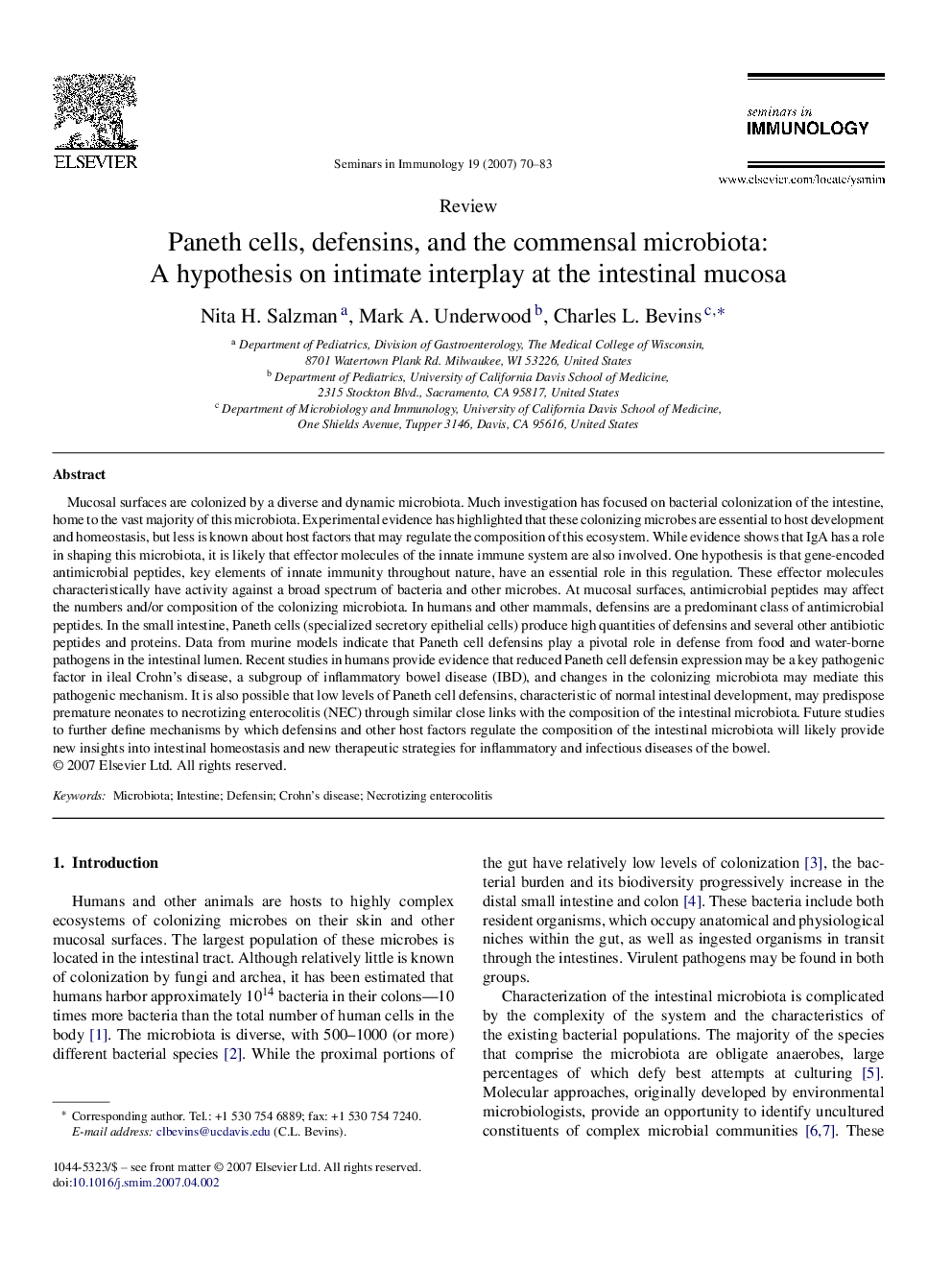| کد مقاله | کد نشریه | سال انتشار | مقاله انگلیسی | نسخه تمام متن |
|---|---|---|---|---|
| 3391779 | 1221082 | 2007 | 14 صفحه PDF | دانلود رایگان |

Mucosal surfaces are colonized by a diverse and dynamic microbiota. Much investigation has focused on bacterial colonization of the intestine, home to the vast majority of this microbiota. Experimental evidence has highlighted that these colonizing microbes are essential to host development and homeostasis, but less is known about host factors that may regulate the composition of this ecosystem. While evidence shows that IgA has a role in shaping this microbiota, it is likely that effector molecules of the innate immune system are also involved. One hypothesis is that gene-encoded antimicrobial peptides, key elements of innate immunity throughout nature, have an essential role in this regulation. These effector molecules characteristically have activity against a broad spectrum of bacteria and other microbes. At mucosal surfaces, antimicrobial peptides may affect the numbers and/or composition of the colonizing microbiota. In humans and other mammals, defensins are a predominant class of antimicrobial peptides. In the small intestine, Paneth cells (specialized secretory epithelial cells) produce high quantities of defensins and several other antibiotic peptides and proteins. Data from murine models indicate that Paneth cell defensins play a pivotal role in defense from food and water-borne pathogens in the intestinal lumen. Recent studies in humans provide evidence that reduced Paneth cell defensin expression may be a key pathogenic factor in ileal Crohn's disease, a subgroup of inflammatory bowel disease (IBD), and changes in the colonizing microbiota may mediate this pathogenic mechanism. It is also possible that low levels of Paneth cell defensins, characteristic of normal intestinal development, may predispose premature neonates to necrotizing enterocolitis (NEC) through similar close links with the composition of the intestinal microbiota. Future studies to further define mechanisms by which defensins and other host factors regulate the composition of the intestinal microbiota will likely provide new insights into intestinal homeostasis and new therapeutic strategies for inflammatory and infectious diseases of the bowel.
Journal: Seminars in Immunology - Volume 19, Issue 2, April 2007, Pages 70–83